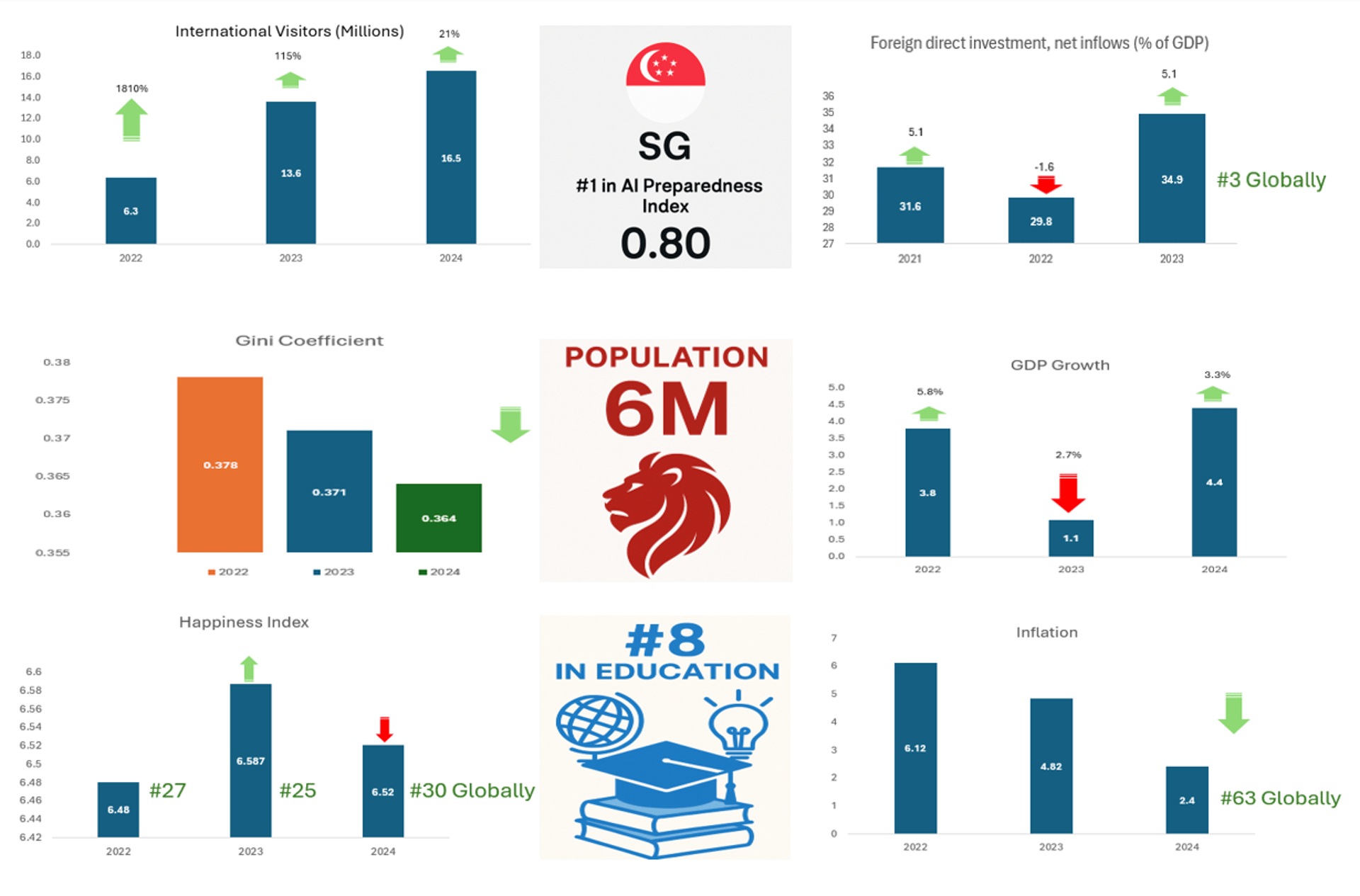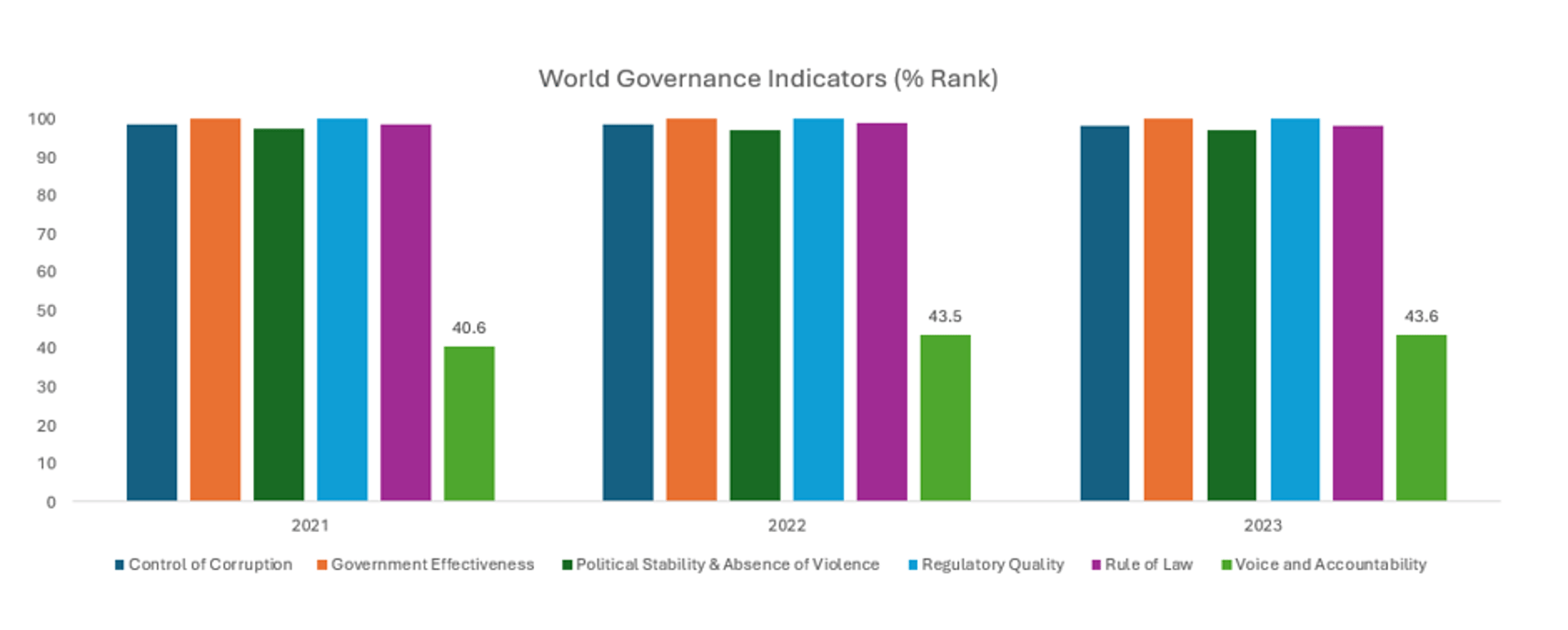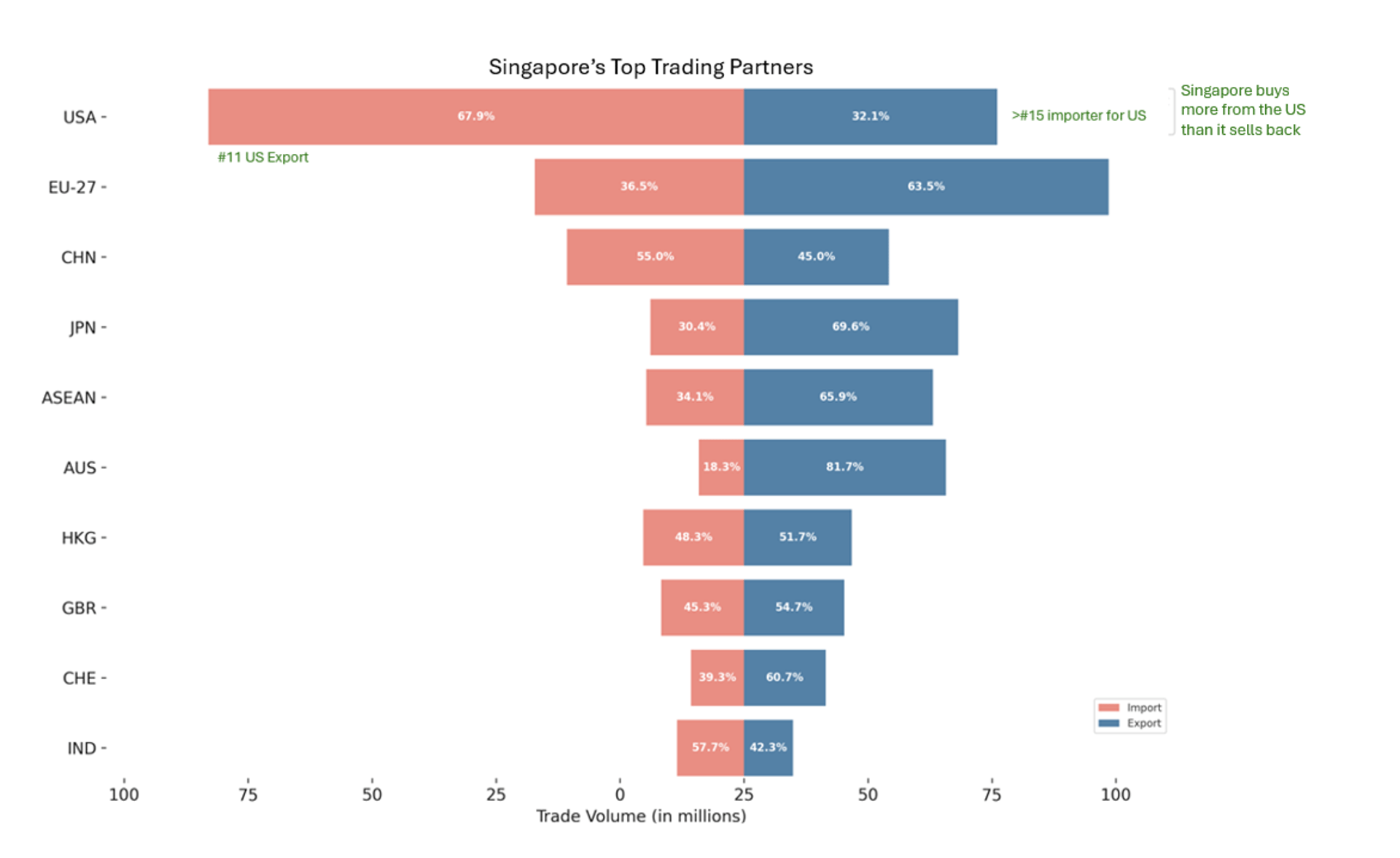Explore Singapore through the lens of ten vital indicators
From AI readiness and education to trade, tourism, Happiness Index, income equity and Trade Partners. This data-driven analysis offers a comprehensive pulse check on the nation’s progress, strengths, and priorities in today’s competitive global landscape.
4/21/20252 min read



Singapore by the Numbers: A 10-Indicator National Pulse Check
Singapore continues to set the benchmark globally through its forward-looking policies, economic resilience, and digital-first strategy. A standout highlight is its #1 global ranking in the AI Preparedness Index, scoring 0.80, reflecting the nation's leadership in digital infrastructure, skilled workforce, and adaptive regulatory frameworks. Complementing this is Singapore's position as the #3 destination globally for Foreign Direct Investment (FDI) as a percentage of GDP, underscoring investor confidence and a highly favorable business climate.
Tourism has also staged a robust comeback. From 6.3 million international visitors in 2022, arrivals surged to 16.5 million by 2024, driven by Singapore’s safe reopening strategy and global appeal as a destination for both business and leisure.
Social and economic indicators show a balanced, steady trajectory. The Gini coefficient has declined from 0.378 in 2022 to 0.364 in 2024, suggesting improving income equity. The Happiness Index score stands at 6.52, ranking Singapore 30th globally, reflecting satisfaction with public services, stability, and opportunities. The country’s education system remains world-class, maintaining a #8 global ranking, reinforcing long-term human capital strength.
On the economic front, GDP growth rebounded to 4.4% in 2024, following a dip to 1.1% in 2023, showing resilience amid external shocks. Inflation, once as high as 6.12% in 2022, has been brought down to 2.4%, ranking Singapore 63rd globally and indicating prudent fiscal and monetary management.
Governance remains a core pillar of Singapore’s success. It consistently scores above 95% globally in areas such as Control of Corruption, Government Effectiveness, Regulatory Quality, and Rule of Law. While Voice and Accountability remains relatively lower at 43.6%, it shows a gradual upward trend, indicating progress toward broader civic engagement.
In trade, Singapore maintains deep and diverse economic ties. The U.S. is its largest trading partner, accounting for 67.9% imports and 32.1% exports. From the U.S. perspective, Singapore is the #11 export market and ranks among the top 15+ import sources. Notably, the U.S. exports more to Singapore than it imports, emphasizing Singapore’s importance as a strategic, high-value trade partner. Regional ties with ASEAN, EU-27, and China also remain strong and balanced.
Altogether, Singapore emerges as a digitally advanced, economically resilient, and globally integrated nation—backed by strong governance.
Citation and References
“Data Page: Gini Coefficient”, part of the following publication: Joe Hasell, Bertha Rohenkohl, Pablo Arriagada, Esteban Ortiz-Ospina, and Max Roser (2023) - “Economic Inequality”. Data adapted from World Bank Poverty and Inequality Platform. Retrieved from https://ourworldindata.org/grapher/economic-inequality-gini-index [online resource]
Happiest Countries in the World 2025. World Population Review. Retrieved April 21, 2025, from https://worldpopulationreview.com/country-rankings/happiest-countries-in-the-world
US Trade data - https://www.usitc.gov/research_and_analysis/tradeshifts/
Singapore Trade Data, Gini Index - Singstat.gov.sg
Worldwide Governance Indicators, 2024 Update, World Bank (www.govindicators.org), Accessed on 20/04/2025
Inflation Data: https://www.imf.org/external/datamapper/NGDPD@WEO/OEMDC/ADVEC/WEOWORLD?year=2025
AI Preparedness Index- International Monetary Fund (IMF)
